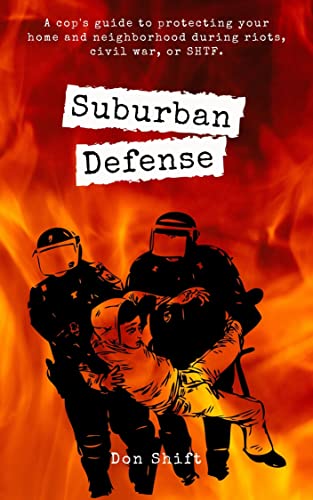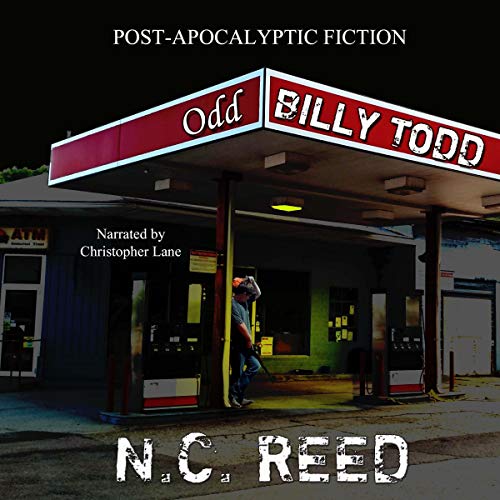Suburban Defense by Don Shift.
If you go into Suburban Defense expecting a detailed blueprint on how to defend your home in the burbs, you’re going to be disappointed. This isn’t that book. If you think about it, that makes sense. Every house in every suburb is a different situation and will require a unique solution.
However, the situations that you will face once the rule of law is over, whether permanently or temporarily, will be much the same from place to place. If you’re in a nearby suburb of a big city, it won’t make a lot of difference whether it’s Charlotte, NC or San Diego, CA. (Except for how you’re armed.) The same goes if you live in rural Kansas vs. rural Georgia. The terrain and natural resources are different, but the problems will be much the same.
The information Shift is imparting is more along the lines of how to think about the situation you find yourself in and how to conceptualize your responses and actions if things get bad. There’s a lot of good information to carry your through that exercise. Chapters include high level topics such as “Critical Event Categories”, “Neighbors and Defenders”, “Intelligence” and “Communications” and more down and dirty subjects such as “Riot Basics”, “Fighting and Combat in a Suburb”, “Night Vision” and “Firearms and Tactical Accessories”. Chapters I found particularly interesting were “Vehicles” and “Evacuation”, the latter of which deals with basic convoy tactics. While I don’t plan on bugging out for several reasons, just that little bit made the Kindle version of the book worth it’s price.
The author has sprinkled money quotes throughout the book. In “Refugees and Tent Camps”, there is
The point is, as awful as a refugee crisis is, and that it could affect you, if you are not a refugee you have a duty first to you and your family. Strangers come second. You must be prepared in mind, heart, and defense to deal with refugees who want to take what you have. I suggest a certain hardness of heart during this time; this will not be the society that came together to survive the Great Depression.
Another is in the chapter “Evacuation”, and it deals with what is commonly called “The Golden Horde”.
When some godawful catastrophe strikes LA (for example), people are going to flood out of the city and into the local mountains. These people will be fleeing into the wilderness, ill-equipped and unprepared. Only a fraction of the population can camp without logistics that resemble a military deployment, let a lone bushcraft. The overwhelming majority of people who go out into the woods will either die there or return home.
The last is in the chapter “Defending Your Suburb” and it’s short, sweet and to the point
Have the equipment and plans to resolve things without bullets.
Shift is a former sheriff’s deputy, but he doesn’t come across with what I’ve often called that “cop attitude”. Sure, a bit sneaks in here and there, but by and large its most notable in it’s absence.
If you’ve been doing prepping since it was survivalism, you might think that you’re not going to find anything here you don’t know. I thought that for the first few chapters, but I kept pushing on and found that, overall, it’s been worth my time and effort. Enough so that I’ll probably add this to my real world bookshelf, once some used copies show up.




